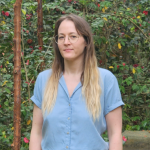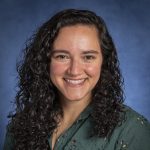Current Fellows
 Christopher Bosley, PhD
Christopher Bosley, PhD
2nd Year
Christopher Bosley is a medical sociologist and T32 National Research Service Award fellow in Primary Care Research at the Cecil G. Sheps Center for Health Services Research at The University of North Carolina at Chapel Hill. Chris is a former paramedic and firefighter, having completed a 20+ year career in emergency services prior to finishing his graduate level studies. He received his Bachelor of Arts degree in History with a minor in Middle Eastern and Islamic Studies from Niagara University in Niagara Falls, NY and his Master of Arts and Doctor of Philosophy both in Sociology at The State University of New York at Buffalo. Chris’ experiences working in emergency services in Buffalo, NY and the surrounding Western New York area sparked his curiosities and study into the social determinants of stress and health, especially in high-stress jobs like emergency services.
Chris’ current research is centered on emergency medical services (EMS) topics. His dissertation examined 1) work-related stressors and their effects on different measures of health, 2) how the stress-health link varies by EMS providers employed in the public vs. private sectors, and 3) how informed coping and social support helps to mitigate some of the stress that working in EMS brings. Each of these studies from the dissertation are either already submitted to peer-reviewed academic journals or in the final preparation process for submission. While preparing his dissertation work for publication, Chris has received helpful feedback from his fellowship mentor at Sheps, Dr. Katrina Donahue, as well as his co-fellow Jeanna Campbell and Sheps faculty research fellow, Dr. Tania Jenkins.
Chris is currently conducting work on inequities in ambulance response time across the state of North Carolina. He aims to study whether variation exists in response time to 9-1-1 calls across different domains of inequity: rurality, poverty, and racialized residential segregation. The data for this study comes from the North Carolina Office of EMS, as a part of the National EMS Information Service (NEMSIS). Chris is also working with Dr. Lisa Zerden, Deputy Director of the UNC Behavioral Health Workforce Research Center, studying the implementation of behavioral health emergency competencies of the National EMS Education Standards into EMS curriculum across accredited EMS instruction programs in the United States. Lastly, Chris has also been pursuing a new research interest of his with Drs. Leah Ranney and Sarah Kowitt in the Department of Family Medicine, on a NIDA grant funded exploration of cannabis health warnings and labels. This project is studying the regulatory landscape across the cannabis industry from the perspective of State-level regulators. In this study, Chris has been assisting in the qualitative coding and thematic development from interview data of twenty interviews with cannabis regulators in different states in the US.
Research Interests: social determinants of health, stress and health, mental health, emergency medical services
 Jeanna Campbell, PhD, MSW
Jeanna Campbell, PhD, MSW
2nd Year
Jeanna Campbell earned a PhD in Philosophy of Social Work from the University of Illinois Urbana-Champaign. Her three-manuscript dissertation applied syndemics theory to the deleterious relationships between structural violence and metabolism. In her research, Dr. Campbell identified the Diabetes, Obesity, and Economic Social Exclusion (DOSE) Syndemic among a nationally representative sample. As a form of structural violence, economic social exclusion led to worse diabetes outcomes, including increased diabetes prevalence, among Black non-Hispanic, and Hispanic women living with obesity in the United States.
As a postdoctoral fellow, Dr. Campbell contributes to interventions addressing the negative impacts of different forms of structural violence on metabolic health. Including community-informed multilevel level and culturally tailored interventions delivered in primary health care centers. The interventions support the metabolic health of low income and rural patients by addressing social (e.g., interpersonal and organizational social support) and dietary needs and preferences.
Dr. Campbell is a recipient of the All of Us Data Fellowship hosted by the National Institutes of Health, and Emerging Leader with the National Institutes of Diabetes and Digestive and Kidney Diseases. Dr. Campbell is trained in analytical methods for handling multi-level and biomarker data. Her future research aims to intervene in the pathogenesis of diabetes and obesity, and related comorbidities such as kidney disease, among adults with low income by incorporating adaptive multilevel interventions tailored to meet specific subpopulations’ needs.
Research Interests: Social determinants of metabolic health; community-informed, culturally tailored, multilevel, and adaptive interventions
 Fithi Andom, PhD, LISW
Fithi Andom, PhD, LISW
1st Year
Fithi earned her PhD in Social Work from Washington University in Saint Louis and holds an MSW and an MA in Sociology from Ohio University. She is a licensed clinical social worker and a certified Parent-Child Interaction Therapy (PCIT) provider, with research and clinical experience focused on early childhood mental health, trauma, and parent–child interventions. Her research focuses on child maltreatment prevention, intergenerational trauma, and attachment-based interventions, with emphasis on health disparities and implementation science. Her work aims to improve behavioral, health, and educational outcomes for young children exposed to trauma, particularly abuse and neglect, through the development of culturally responsive, integrated mental health interventions that strengthen parent–child attachment and address family trauma.
Drawing on more than a decade of clinical and research experience, Fithi brings expertise in school- and community-based mental health, behavioral health integration in preschool settings, and global trauma-informed parenting interventions in Haiti and Uganda. Her mixed-methods research integrates quantitative and qualitative approaches to advance equitable access to effective interventions for underserved children and families.
Her dissertation research focused on demonstrating that the relationships between immigrant parents’ traumatic stress and child development and mental health correlates were partly influenced by the mother’s depression levels and parenting behavior. Using a national multi-site dataset from the Parents as Teachers Home Visitation program, she analyzed data from over 6,000 mother-baby dyads, making it one of the few large-scale studies of this underserved population. Key findings show that immigrant families face higher rates of child developmental delays compared to national averages, with maternal depression playing a significant role in affecting child development. Additionally, intimate partner violence and child welfare involvement were found to impact home visitation participation and long-term child behavioral outcomes negatively. This project addressed important gaps in understanding the unique challenges faced by immigrant families, highlighting the need for tailored, culturally responsive early interventions.
Currently, as an NRSA Primary Care Research Fellow, Fithi is the principal investigator of the Enhancing PriCARE Implementation in Pediatric Primary Care study. As the implementation evaluation arm of an NICHD-funded randomized trial of the PriCARE intervention (R01HD103902; PI- Samantha Schilling), her project focuses on identifying barriers and facilitators to implementation to inform strategies that improve access and effectiveness of co-located behavioral health programs in pediatric primary care.
Research interests: Child mental health, intergenerational trauma, attachment-based and co-located behavioral health interventions, implementation science, quality improvement

Yasamin Sanii, MD
1st Year
Yasamin Sanii is from Raleigh, North Carolina. She completed her Bachelors in Public Health at UNC Chapel Hill. She then went to Brody School of Medicine at ECU for her medical degree, which confirmed her passion for pediatrics, primary care and serving the underserved. She then completed Pediatric Residency and chief year at the Johns Hopkins Harriet Lane Pediatrics Residency program in Baltimore, Maryland. She has now returned to NC as a NRSA Primary Care Research Fellow, where she hopes to continue her clinical practice in primary care pediatrics and pursue research in pediatric injury prevention and immigrant health and access to care.
 Rachel M. Vaughn, PhD, MOT, OTR/L
Rachel M. Vaughn, PhD, MOT, OTR/L
1st Year
Rachel Vaughn is an occupational therapist, occupational scientist, and disability researcher with a focus on children and youth who have experienced a neurological event and their families. Rachel’s background and training focuses her research on the factors of daily life that influence participation, wellness, and development.
Throughout her clinical career, Rachel was interested in what happens between therapy encounters and after discharge from occupational therapy. This curiosity led to Rachel’s dissertation research, which combined quantitative survey-based and qualitative narrative methods to examine how youth with neurological disabilities participate in life activities outside the healthcare system.
For her postdoctoral work, Rachel will bring her focus back to the healthcare system. She will investigate how youth and their families navigate healthcare, particularly during the transition to adulthood. Rachel is interested in exploring healthcare access, continuity of care, and system-level improvements for youth with neurological disabilities—both congenital and acquired conditions.
Research interests: children and youth; families; chronic and acquired disability; healthcare transitions; continuity of care; participation; implementation science; engaged research approaches
You must be logged in to post a comment.